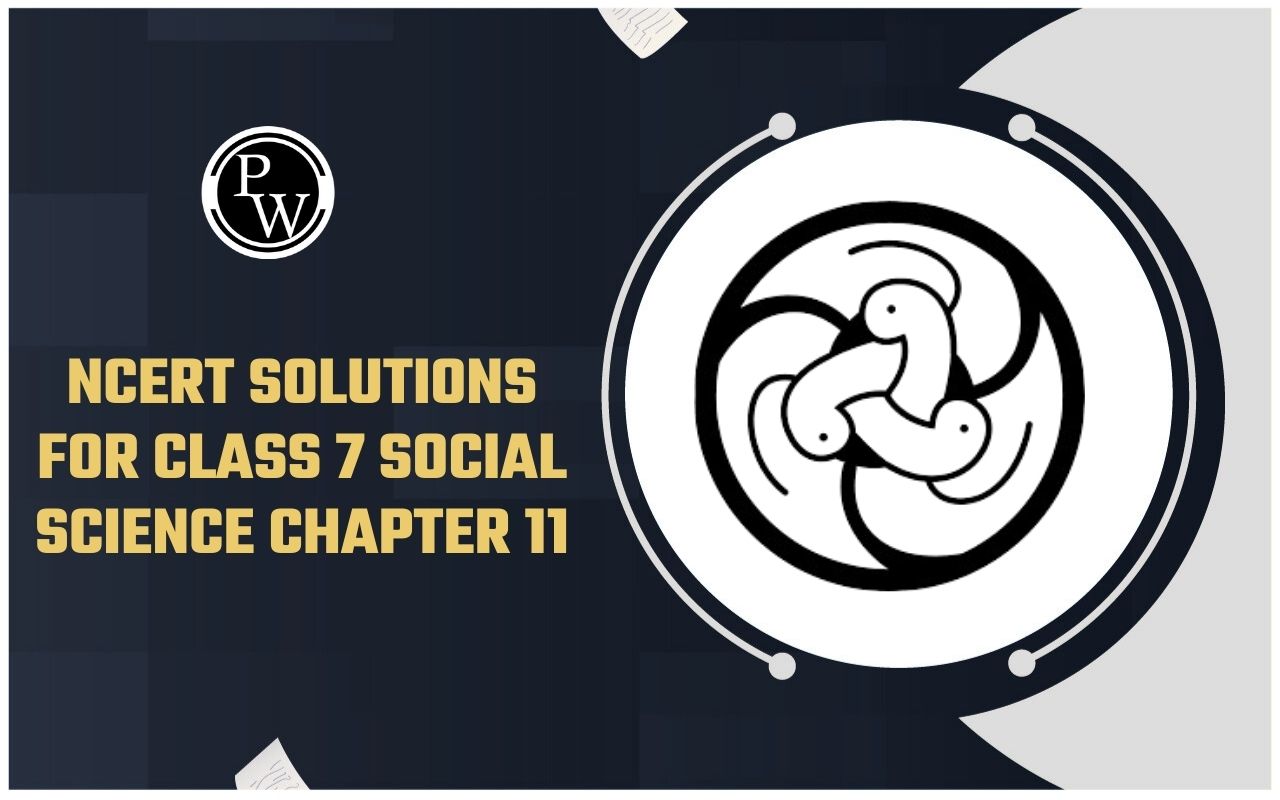
Epidemic and Pandemic Diseases: Epidemics and pandemics refer to the rapid spread of infectious and non-infectious diseases affecting many people in a particular geographic area or beyond. An epidemic occurs when the number of cases of a particular disease exceeds what is usually expected in a specific area. A pandemic, on the other hand, refers to a worldwide disease epidemic.
Epidemics and pandemics have profoundly impacted human history, affecting not only the health of populations but also their social, economic, and political systems. Understanding the causes and spread of these diseases is crucial in developing effective strategies for their prevention, control, and management. Throughout human history, numerous epidemics and pandemics have significantly impacted populations. Some of the most well-known include the bubonic plague, also known as the "Black Death," which killed an estimated 75-200 million people in Europe during the 14th century; the 1918 influenza pandemic, which killed an estimated 50 million people worldwide; and the recent COVID-19 pandemic, which has affected millions of people globally. These events have shaped human history and continue to serve as reminders of the importance of preparedness and response to disease outbreaks.Related Links -
What is an Epidemic?
A. Definition
An epidemic refers to the rapid spread of a disease within a specific geographic area, affecting more people than expected. The number of cases of the disease exceeds what is typically seen in the exact geographic location during a similar period.B. Causes of Epidemics
Epidemics can be caused by various factors, including the emergence of new or mutated disease strains, a breakdown in public health measures, and changes in human behaviour that increase the risk of disease transmission. Natural disasters, wars, and other events that disrupt normal living conditions can also contribute to the spread of disease.Environmental Issues and Solutions
C. Characteristics of Epidemics
A sudden increase in cases of a particular disease within a defined geographic area characterises epidemics. They can affect isolated communities and large cities, and the spread of the disease can be rapid. Epidemics may also be limited in duration, lasting only a few weeks or months, or they may persist for several years.D. Examples of Epidemics
There have been many epidemics throughout history, including the bubonic plague, cholera, and tuberculosis. More recent examples include the Ebola epidemic in West Africa in 2014 and the ongoing opioid epidemic in the United States. In each case, the epidemic was caused by a unique set of circumstances, including new disease strains, a breakdown in public health measures, and changes in human behaviour.What is a Pandemic?
A. Definition
A pandemic refers to a worldwide disease epidemic affecting many people across multiple countries or continents. Unlike an epidemic limited to a specific geographic area, a pandemic can spread rapidly across the globe, affecting large populations in multiple regions.B. Differences between Epidemics and Pandemics
The main difference between an epidemic and a pandemic is their scope and geographic spread. An epidemic is limited to a specific geographic area, while a pandemic affects populations across multiple countries or continents. Additionally, pandemics typically involve the spread of a disease's new or highly infectious strain, while epidemics may involve the re-emergence of an existing disease.Entamoeba Histolytica Life Cycle
C. Characteristics of Pandemic s
Pandemics are characterised by a rapid and widespread spread of a disease across multiple regions and countries. They can affect large populations, leading to widespread illness and death. Pandemics may also cause significant disruptions to daily life and the global economy as health systems become overwhelmed and measures such as travel restrictions are implemented to slow the spread of the disease.D. Examples of Pandemics
There have been several well-known pandemics throughout history, including the 1918 influenza pandemic, the H1N1 swine flu pandemic in 2009, and the ongoing COVID-19 pandemic. In each case, the pandemic was caused by the rapid spread of highly infectious diseases across multiple countries and continents. The severity of the pandemic and its impact on populations and the global economy varies depending on the specific disease and the measures taken to control its spread.How are Epidemics and Pandemics Spread?
A. Modes of transmission
Epidemics and pandemics can be spread through a variety of modes of transmission, including direct contact with an infected person, contact with contaminated surfaces or objects, and respiratory droplets generated by an infected person when they cough or sneeze. Some diseases, such as Ebola, can also be transmitted through contact with infected bodily fluids.B. Contagiousness
The contagiousness of a disease refers to its ability to spread from person to person. Some diseases, such as the flu, are highly contagious and can be easily spread from person to person. In contrast, others, such as Ebola, are less contagious but pose a significant risk. The contagiousness of a disease is an essential factor in its ability to spread rapidly and cause widespread illness and death.C. Role of human behaviour
Human behaviour plays a critical role in the spread of epidemics and pandemics. Poor hygiene, close physical contact with infected individuals, and travel to and from affected areas can increase the risk of disease transmission. Additionally, not wearing masks or failing to practice social distancing can contribute to the spreading disease. Understanding the role of human behaviour in disease transmission is crucial in developing effective strategies for preventing and controlling the spread of epidemics and pandemics.Double Fertilization In Angiosperms
Prevention and Control of Epidemics and Pandemics
A. Identification and Reporting
The first step in preventing and controlling epidemics and pandemics is the early identification and reporting of outbreaks. Health systems must be able to detect disease cases and quickly report outbreaks to public health authorities, who can then implement measures to slow the spread of the disease.B. Quarantine and Isolation
Quarantine and isolation are essential measures for preventing the spread of disease. Quarantine separates individuals who may have been exposed to the disease but are not yet symptomatic. In contrast, isolation refers to separating individuals who are confirmed to have the disease and are symptomatic. Quarantine and isolation can help to slow the spread of disease by preventing infected individuals from coming into close contact with others and spreading the disease.C. Vaccination
Vaccination is crucial in preventing and controlling the spread of epidemics and pandemics. Vaccines can help to prevent individuals from becoming infected with the disease, reducing the overall number of cases and slowing the spread of the disease. Additionally, widespread vaccination can also help to create herd immunity, where a large portion of the population is protected from the disease, and the spread of the disease is limited even among those not vaccinated.D. Hygiene and Sanitation
Hygiene and sanitation are essential measures for preventing the spread of disease. Good hygiene practices, such as handwashing, can help reduce disease spread from person to person. Also, good sanitation practices, such as properly disposing of contaminated waste and cleaning contaminated surfaces, can help reduce the spread of disease.E. Importance of a robust healthcare system
A robust healthcare system is essential for preventing and controlling the spread of epidemics and pandemics. A robust healthcare system must be equipped with the resources and capacity to detect and respond to disease outbreaks, provide adequate care and treatment to individuals who are sick, and prevent the spread of disease within healthcare facilities. Additionally, a robust healthcare system must implement measures to slow the spread of disease, such as quarantine and isolation, and provide widespread access to vaccines and treatments.F. Public education and awareness
Public education and awareness are essential in preventing and controlling epidemics and pandemics. By educating individuals on the causes, symptoms, and modes of transmission of diseases, as well as on good hygiene and sanitation practices, public health authorities can help to reduce the spread of disease and protect the health of communities.G. Research and Development
Continuous research and development are crucial in preventing and controlling epidemics and pandemics. Research can lead to the development of new and improved vaccines, treatments, and diagnostic tools, which can help to prevent the spread of disease and improve the overall health of communities.H. International Cooperation
International cooperation is essential in preventing and controlling epidemics and pandemics. By sharing information, resources, and expertise, countries can work together to detect and respond to outbreaks, prevent disease spread, and improve communities' overall health.Double Fertilization In Angiosperms
Impact of Epidemics and Pandemics on Society
A. Economic Impact
Epidemics and pandemics can significantly impact the economy. The cost of treating and caring for individuals who are sick, as well as the cost of preventing the spread of disease, can be substantial. Additionally, outbreaks can lead to disruptions in trade and commerce as businesses close and travel restrictions are put in place. Furthermore, the fear of disease outbreaks can also impact consumer spending and investment, decreasing economic activity and growth.B. Psychological Impact
Epidemics and pandemics can also have a profound psychological impact on individuals and communities. Fear and anxiety about the spread of disease can lead to social isolation and stress and impact mental health. Losing loved ones and fearing losing loved ones can also profoundly impact individuals and communities, leading to long-term psychological distress.C. Political Impact
Epidemics and pandemics can also have political impacts, as governments and public health authorities must take measures to prevent the spread of disease and protect the health of communities. These measures include implementing quarantine and isolation protocols, restricting travel, and closing businesses and public spaces. These measures can also lead to debates about individual rights and freedoms and impact the political landscape.D. Social Impact
Finally, epidemics and pandemics can also have a significant social impact, as outbreaks can lead to disruptions in daily life and changes in social norms and behaviours. For example, during pandemics, individuals may be more hesitant to participate in public gatherings and may limit close contact with others. Additionally, outbreaks can also lead to stigma and discrimination against individuals who are sick or who are perceived to be at risk of becoming sick. These social impacts can have long-term consequences for individuals and communities.Related Links -
Epidemic and Pandemic Diseases <span style=
What is an epidemic?
An epidemic is a sudden increase in disease cases above what is normally expected in a specific geographic area or population. Epidemics are usually limited in time and place and can occur in a community, city, or country.
What is a pandemic?
A pandemic is a global disease outbreak that occurs over a wide geographic area and affects an exceptionally high proportion of the population. A pandemic can spread rapidly across countries and continents due to increased travel and trade.
What is the difference between an epidemic and a pandemic?
The main difference between an epidemic and a pandemic is the geographic area and the number of people affected. An epidemic is a sudden increase in disease cases in a specific area. At the same time, a pandemic is a global disease outbreak that affects a large proportion of the population across multiple continents.
What are some common examples of epidemic diseases?
Some common examples of epidemic diseases include
Influenza (the flu),
Measles,
Tuberculosis,
Cholera,
Plague.
What are some common examples of pandemic diseases?
Some common examples of pandemic diseases include
Spanish Flu (1918-1919)
Asian Flu (1957-1958)
HIV/AIDS pandemic
COVID-19 pandemic.
How can epidemic and pandemic diseases be prevented?
To prevent the spread of the epidemic and pandemic diseases, it is important to practice good hygiene, such as:
Washing your hands frequently with soap and water
Covering your mouth and nose when you cough or sneeze
Staying home when you are sick
Getting vaccinated.
Talk to a counsellorHave doubts? Our support team will be happy to assist you!

Free Learning Resources
PW Books
Notes (Class 10-12)
PW Study Materials
Notes (Class 6-9)
Ncert Solutions
Govt Exams
Class 6th to 12th Online Courses
Govt Job Exams Courses
UPSC Coaching
Defence Exam Coaching
Gate Exam Coaching
Other Exams
Know about Physics Wallah
Physics Wallah is an Indian edtech platform that provides accessible & comprehensive learning experiences to students from Class 6th to postgraduate level. We also provide extensive NCERT solutions, sample paper, NEET, JEE Mains, BITSAT previous year papers & more such resources to students. Physics Wallah also caters to over 3.5 million registered students and over 78 lakh+ Youtube subscribers with 4.8 rating on its app.
We Stand Out because
We provide students with intensive courses with India’s qualified & experienced faculties & mentors. PW strives to make the learning experience comprehensive and accessible for students of all sections of society. We believe in empowering every single student who couldn't dream of a good career in engineering and medical field earlier.
Our Key Focus Areas
Physics Wallah's main focus is to make the learning experience as economical as possible for all students. With our affordable courses like Lakshya, Udaan and Arjuna and many others, we have been able to provide a platform for lakhs of aspirants. From providing Chemistry, Maths, Physics formula to giving e-books of eminent authors like RD Sharma, RS Aggarwal and Lakhmir Singh, PW focuses on every single student's need for preparation.
What Makes Us Different
Physics Wallah strives to develop a comprehensive pedagogical structure for students, where they get a state-of-the-art learning experience with study material and resources. Apart from catering students preparing for JEE Mains and NEET, PW also provides study material for each state board like Uttar Pradesh, Bihar, and others
Copyright © 2026 Physicswallah Limited All rights reserved.









